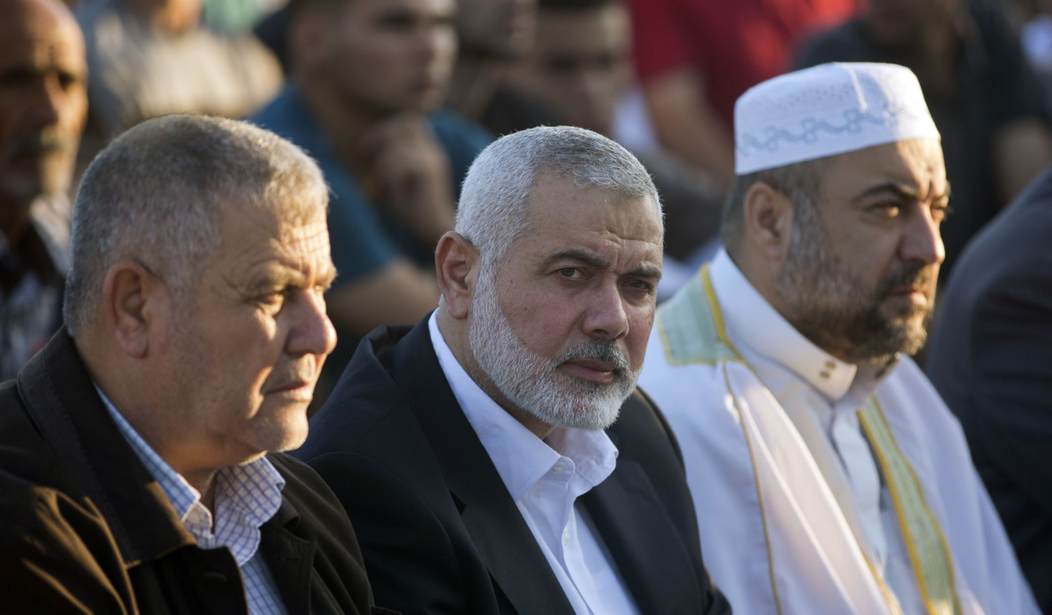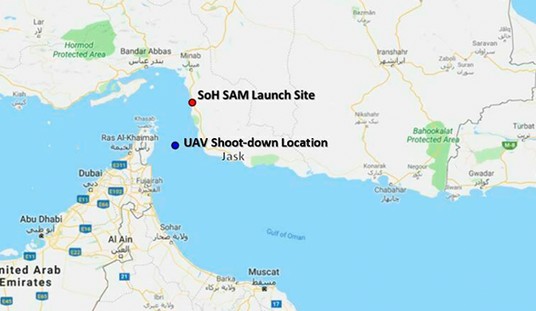Well, that’s that. Under pressure from the US and other allies as well as the families of the remaining hostages, Israel offered a one-week operational pause to exchange more Palestinian prisoners to free the remaining Israelis. That offered a longer pause than the first deal, and a potential framework for other discussions.
Instead, Hamas insisted on a formal cease-fire, release of all imprisoned Palestinians, and increased aid just to open negotiations:
The hostage negotiations were set to include, for the first time, representatives of Hamas ally Palestinian Islamic Jihad, which has also said that Israel must implement a cease-fire before negotiations could start. Islamic Jihad also demands that Israel free all of its thousands of Palestinian prisoners in return for the over 100 hostages remaining in Gaza.
Fighters belonging to Islamic Jihad, which like Hamas has been designated a terrorist organization by the U.S., also participated in the Oct. 7 attacks in Israel and took hostages.
In the offer rejected by Hamas, Israel sought the release of 40 hostages, including all the remaining women and children and elderly male hostages who need urgent medical treatment, the Egyptian officials said. In return, the Israeli military would pause its ground and air operations in Gaza for a week and allow further humanitarian aid to enter the enclave, the Egyptian officials said.
The Times of Israel and the WSJ both note that Hamas and PIJ both usually insist on these conditions in opening negotiations after starting wars, but this time things have changed. The Israelis, who were already skeptical of more negotiations anyway, just told them to pound sand:
The stance, which has been trotted out by the terror group before, comes amid intense talks for a possible deal that would see hostages released in exchange for Palestinian inmates in Israeli prison. The group already claims it won’t accept a temporary truce.
A statement carried in Hebrew media reports by an Israeli official accuses the Gaza-ruling terror group of trying to condition the releases on the war ending. “It won’t happen,” the source says.
Nine years ago, Israel would have gone along with this, under pressure from Cairo and Washington DC. After October 7, Israel simply cannot go back to the status quo ante again. Hamas and PIJ are existential threats to Israel’s existence, and their declared intentions to repeat the grotesque barbarities of their invasion of southern Israel as often as needed to destroy Israel makes that all too clear now. Hamas has no interest in governing Gaza; their only interest is in conquering Israel, and after that Egypt and the other Sunni nations of the region.
Will Hamas retreat from those demands to get another “pause”? Jazz is a little more optimistic than I am about that, but it’s also worth noting that the rocket fire on Tel Aviv has begun again in the last hour. Making this demand at this time under the conditions they face in Gaza seems to indicate that their leadership of billionaires would rather let Gaza burn as a recruitment tool and a way to scam more money from the West. And as the WSJ reports separately, Gazans are slowly beginning to realize it:
When news of the Oct. 7 attacks on southern Israel by Hamas militants reached Palestinians in the Gaza Strip, many took to the streets in celebration, distributing sweets and cheering fighters as they paraded hostages through the enclave.
The overwhelming majority of Palestinians blame Israel for the death, destruction and dislocation caused by the war. Yet many Gazans say that Hamas is also responsible for the suffering, and that those voices are getting louder. …
“On the first day, people were happy. But as Israel started pounding Gaza, destroying infrastructure and killing civilians, things started to change,” said Mkhaimar Abusada, a political scientist at Gaza’s Al-Azhar University. “There is a lot of criticism among Palestinians that the Oct. 7 attack—the killing of Israeli civilians, women and children—was a strategic mistake that provoked Israel into the current war.”
“Damn Hamas,” said a hairdresser originally from Gaza City who is now sheltering in Rafah, near the Egyptian border. “May God be my witness: If I see Ismail Haniyeh, I will hit him with my slippers,” she said, referring to Hamas’s political leader. Throwing slippers or shoes at somebody is considered highly insulting in the Arab world.
Just wait until they realize that Hamas fully intended to provoke an invasion of Gaza, on the premise that two things would certainly follow. First, Hamas’ defensive fortifications would create a massive amount of losses for the IDF. Second, that invasion would trigger invasions from Lebanon and Syria by Iran’s other proxies. Israel’s immediate mobilization of 360,000 reserves likely prevented the second expectation, and its 17-year dealings with Hamas improved IDF doctrine and planning well enough to negate the first.
Now, Hamas’ Gaza leadership finds itself trapped, its assets captured and destroyed by the IDF, and no outside forces coming to their rescue. The only leverage they have at the moment are the hostages. Having baited Israel into committing this far into what amounts to a conquest of Gaza, their only hope is either exfiltration or a surrender that might leave them some room to maneuver politically with the Gazans. Haniyeh’s selling them down the river to the sea, so to speak, rather than deal with the reality that Hamas created on October 7.








Join the conversation as a VIP Member